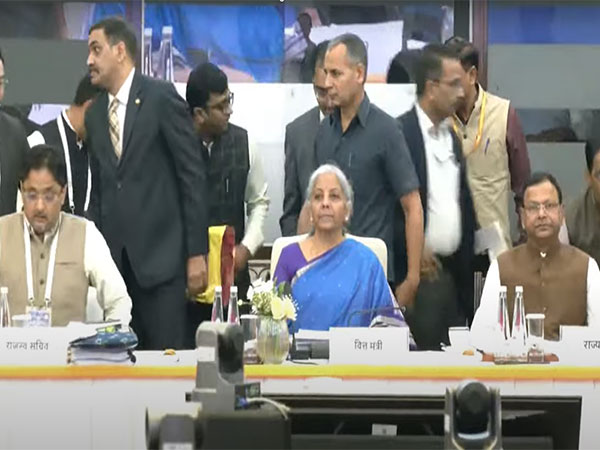GST Council Eyes Major Tax Overhaul Amidst Festival Season
In its 56th meeting, the GST Council, led by Finance Minister Nirmala Sitharaman, is set to streamline India's tax system by reducing GST slabs. Significant changes, including eliminating 12% and 28% slabs in favor of 5% and 18% rates, may boost consumer spending during the festive season.

- Country:
- India
The 56th meeting of the Goods and Services Tax (GST) Council, chaired by Finance Minister Nirmala Sitharaman, is currently taking place in New Delhi. The council aims to introduce significant modifications to the existing GST framework by primarily focusing on rationalizing and reducing the number of tax slabs over a two-day session, occurring on September 3 and 4.
Government sources reveal an intent to eliminate the 12% and 28% tax brackets, reallocating most commodities either to the 5% or 18% slabs. Presently, the GST system comprises four slabs: 5%, 12%, 18%, and 28%. As per the proposed changes, nearly 99% of goods currently taxed at 12% may shift to the 5% bracket, while approximately 90% of the 28% category could move to 18%. 'Sin' goods are expected to consistently incur a higher 40% levy.
Last month, the Group of Ministers (GoM) green-lighted proposals to migrate most items from the 28% to the 18% slab, excluding 'sin' products, and move goods from the 12% to the 5% slab. An additional 40% slab will address 6 to 7 items classified as sin and demerit goods. The meeting gains importance following Prime Minister Narendra Modi's Independence Day hint about a significant GST reform, emphasizing it as a remarkable stride ahead of the festive season, suggesting a 'very big gift' during Diwali.
The Council might also deliberate on a short-term compensation mechanism for states facing revenue reductions from rate cuts. The existing compensation cess structure, originating in July 2017, is expected to remain unchanged. Designed to offset state revenue losses in the initial five years of GST implementation, the GST (Compensation to States) Act, 2017 mandates the Centre to ensure state tax revenues grow by 14% annually based on the 2015-16 baseline.
Discussions are slated to continue into tomorrow, with anticipated announcements post-deliberations. (ANI)
(With inputs from agencies.)
ALSO READ
Not just GST rate rationalisation, this is structural reform, easing compliance: FM Nirmala Sitharaman.
GST Council approves GST rate overhaul, slabs cut to two: 5 pc & 18 pc: FM Nirmala Sitharaman.
GST on all auto parts to be 18 pc: FM Nirmala Sitharaman.
67 per cent of Jan Dhan accounts opened in rural, semi-urban areas, 56 per cent of accounts owned by women: Nirmala Sitharaman in Chennai.
Over past 11 years, 56 crore Jan Dhan accounts opened with total deposit of Rs 2.68 lakh crore : Fin min Nirmala Sitharaman in Chennai.










